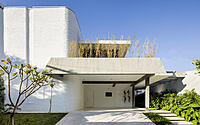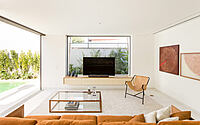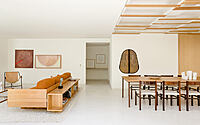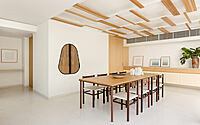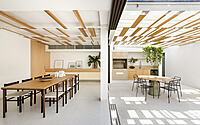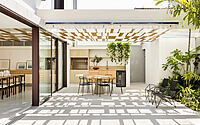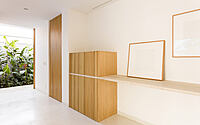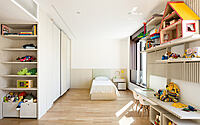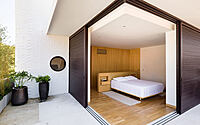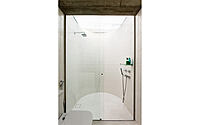JR House by Pascali Semerdjian Architects
JR House is a contemporary two-story house located in São Paulo, Brazil, designed by Pascali Semerdjian Architects.

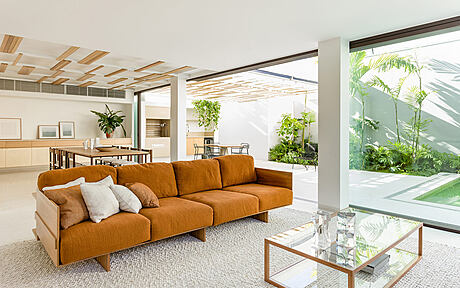
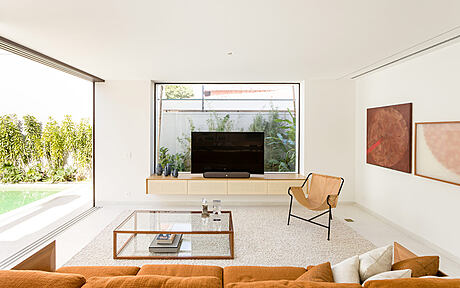
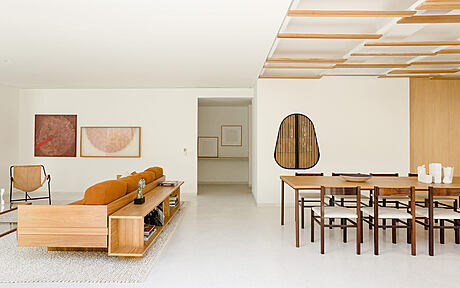

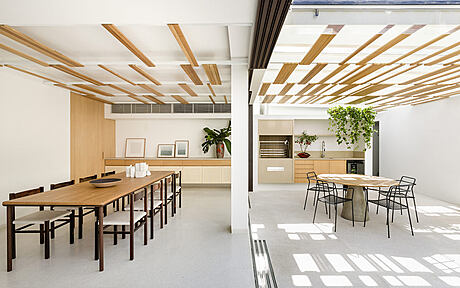
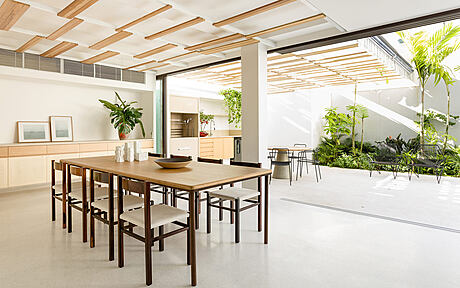
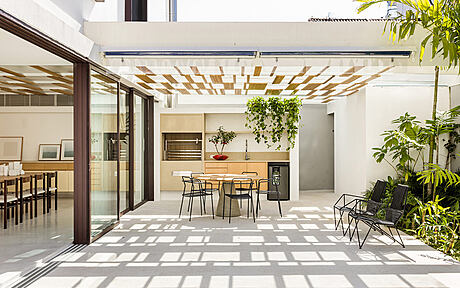
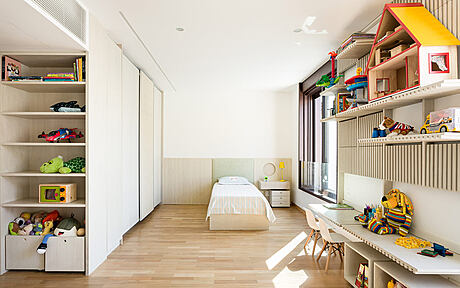
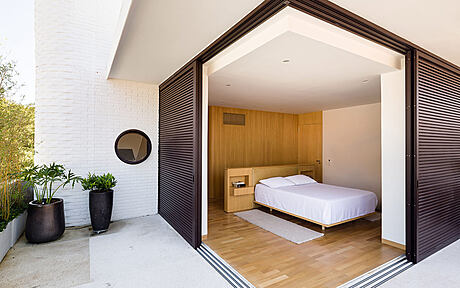
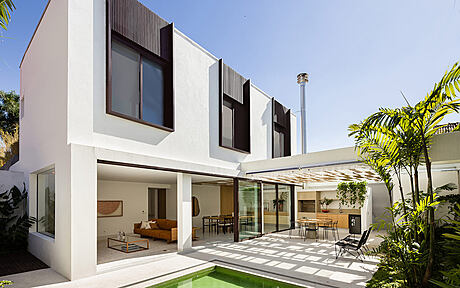
Description
The JR House is located in Pinheiros’s neighborhood in São Paulo and was designed from an existing property that had most of its structure maintained. However, throughout the demolition, we discovered that the construction was compromised and structural adjustments would have to be made. A few key elements guided us, the first was the program given to us by the clients, a young couple with 3 children. From there, we adapt our project idea and client needs to the limitations of an existing house, but with some freedom of structural adjustments. These adjustments gave us more design and spatial flexibility, thus enabling the customers’ wishes.
Another important point initially decided was the maintenance of the original facade of the house: both the volume of white bricks and the trapezoidal concrete porch were elements that captivated us on the first visit to the site. The back façade has been completely redesigned, especially due to the new floor plan where the living room opens completely to the back garden and three bedrooms with identical windows are arranged along the upper part of the volume.
The office work was also meticulously developed in architectural elements that connect the interiors to the exterior, such as the wooden ceiling that connects the dining room to the external patio of the barbecue: internally, the wooden planks bring acoustic and visual comfort and are responsible for the indirect lighting of the environment. On the outside, the wood protects from the sun creating a shady and cozy space. Following this same line of continuity, the kitchen countertop becomes the sideboard in the dining room and a barbecue workbench on the outside balcony. Another subtle and special element of the project is the bar in the dining room: with its “pear”-shaped design, the doors open upwards to reveal a mirrored niche. All interior designs and furniture choices, if not designed, were done by the office.
The biggest obstacle in the process was definitely structural. The discovery of the undersizing of the beams and slabs of the original house delayed the work and raised the initial costs. So that large and costly structural reinforcements did not need to be made, the upper floor and roof masonry walls were removed and replaced with lighter-weight panel walls to alleviate the slab load. The roof was also replaced by a light metal tile, also reducing the weight of the roof.
The spatial configuration of the house and the distribution of the program were guided by the original implantation of the house on the lower floor. Basically the accesses, internal distribution, and openings were significantly changed. On the upper floor, the customers’ desire for 3 suites for their children in addition to the couple’s bedroom led to the total redistribution of the floor plan and consequent alteration of the facades. The master suite now occupies the entire front of the house opening onto the trapezoidal porch.
Photography by Ricardo Bassetti
Visit Pascali Semerdjian Architects
- by Matt Watts